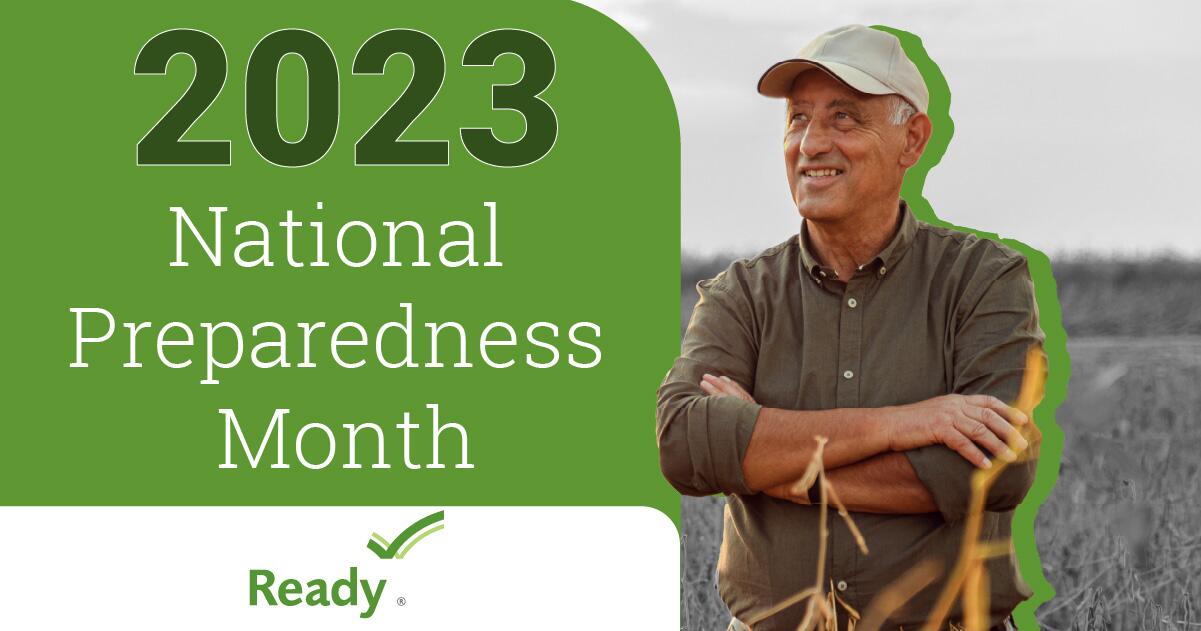With droughts, wildfires, and increasingly violent storms becoming more frequent. These weather events are even impacting people who don’t usually experience a major disaster. Other communities are going through the devastation of disasters multiple times a year without enough time to recover. It is more important than ever to observe National Preparedness Month this September.
Established by FEMA in 2004, the purpose of this month is to reduce the fallout of large-scale emergencies by educating and preparing every citizen of every age. This year’s theme is: “Take Control in 1, 2, 3”. The campaign will focus on preparing older adults for disasters, specifically older adults from communities that are disproportionally impacted by the all-hazard events, which continue to threaten the nation.
We know older adults can face greater risks when it comes to the multitude of extreme weather events and emergencies we now face, especially if they are living alone, are low-income, have a disability, or live in rural areas.
Emergency managers and all those who work with and support older adult communities are encouraged to access the new webpage available in English and Spanish languages at Ready.gov/older-adults and Ready.gov/es/adultos-mayores. For more information on preparing with disabilities visit Ready.gov/disability or Ready.gov/es/discapacidad in Spanish.
Help keep your family safe during disasters by taking three simple actions:
1) Assemble a Kit.
First, build your emergency kit with a gallon of water per person, per day, non- perishable food, a flashlight, battery-powered radio, first aid kit, medications, supplies for infants or pets, a multi-purpose tool, personal hygiene items, copies of important papers, cell phone chargers, blankets, maps of the area and emergency contact information.
2) Make a Plan.
Plan what to do in case you are separated from your family during an emergency and what to do when you must evacuate. Coordinate your plan with your work and your community’s emergency plans. Have a designated out-of-town contact person for your family. Keep your gas tank filled. Know how to shut off your utilities before you evacuate.
Don’t forget to include your pets. Remember, if you and your family need to evacuate, so does your pet. Know in advance which pet-friendly hotels are in your area, and where your pets can stay in an emergency.
3) Be Informed.
Finally, plan to stay informed by finding out how local officials will contact you during a disaster and how you will get important information, such as evacuation orders. Sign up for local and national weather and emergency alerts on your phone. Subscribe to Alert Montgomery to receive emergency alerts from Montgomery County directly to your mobile devices.
Think of all the preparations you make before you go on vacation. Imagine that you had only hours or minutes to prepare and evacuate your home for an indefinite period. You would do well to make some advance preparations. To learn more about becoming prepared, check out the weekly informational campaigns at National Preparedness Month | Ready.gov Or download the Take Control in 1, 2, 3 Disaster Preparedness Guide.

